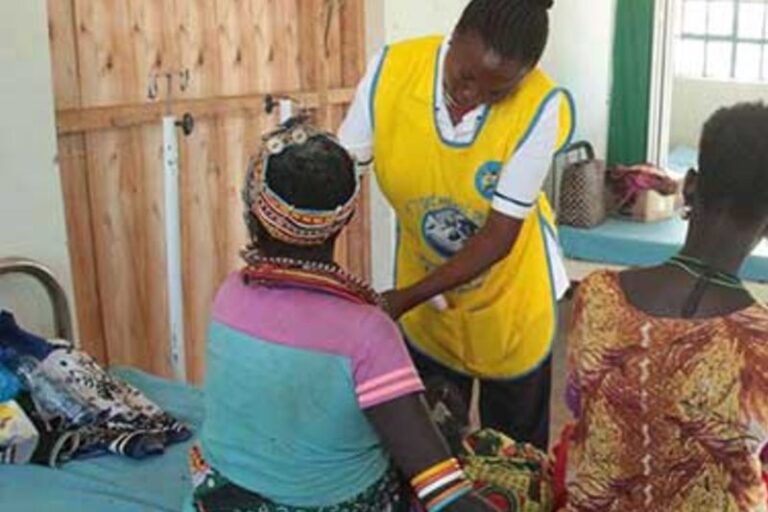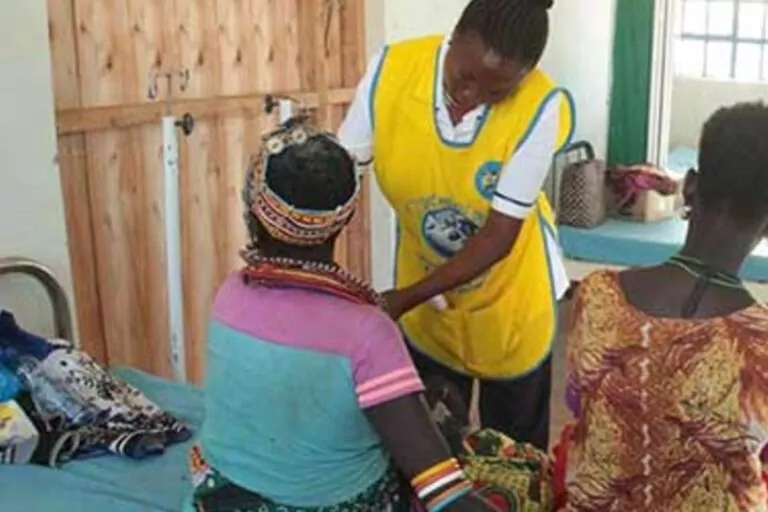

fatal outbreak unknown disease ravages marsabit county of kenya
In Kargi, Marsabit County of Kenya, a distressing outbreak of an unknown disease has claimed the lives of at least nine individuals, while over 80 others are currently battling serious illnesses. Moses Galoro, the esteemed senior chief of the area, has urgently called for immediate intervention to prevent further fatalities and mitigate the impact of the outbreak.
Local media reports indicate that preliminary tests suggest a potential eruption of a severe form of malaria. Chief Galoro reveals that the disease has already claimed the lives of six adults and three children between the ages of one and three years. Strikingly, the affected individuals had recently traveled outside Marsabit County, having come from satellite camps situated in the Archers Post and Merille areas. Among the 27 patients who underwent screening, only five tested positive for malaria.
The most commonly observed symptoms among the affected individuals include flu-like manifestations, yellowing of the eyes, and severe headaches. However, the most recent victim, who tragically passed away at Kargi Health Centre, displayed flu-like symptoms along with a swollen spleen, intense headache, and yellowish eyes, which bear a resemblance to the symptoms of Kalazar.
Medical professionals caution that visceral leishmaniasis, commonly known as kala-azar disease, cannot be ruled out as a possible cause. Visceral leishmaniasis is characterized by recurrent fever, weight loss, enlargement of the spleen and liver, and anemia. According to the World Health Organization (WHO), if left untreated, this disease can be fatal in over 95% of cases.
The outbreak was initially reported two weeks ago and continues to wreak havoc in the region, leaving the local community in a state of distress. In light of the urgency and gravity of the situation, Chief Galoro has fervently appealed for virology tests to be conducted promptly, and for mass screening of residents to be undertaken. These efforts are crucial to ascertain the precise cause of the deaths and to prevent further loss of life.
Remarkably, this outbreak follows closely on the heels of the Kenya Medical Research Institute’s detection of an invasive mosquito species in the Laisamis and Saku areas of Marsabit County, a mere two months ago. The discovery of this mosquito species has added to the concerns and challenges faced by the local health authorities, as it may potentially contribute to the spread of various infectious diseases.
The community of Kargi, Marsabit County, finds itself in the grip of an alarming outbreak, resulting in multiple fatalities and a significant number of individuals battling severe illnesses. The urgent need for intervention, including virology tests and mass screening, cannot be overstated, as it is essential to identify the exact cause of the outbreak and implement appropriate measures to prevent further loss of life. The ongoing presence of the invasive mosquito species further underscores the complexity of the situation, necessitating comprehensive efforts to address the outbreak and protect the well-being of the local population.
African football teams struggle intensely in the World Cup Qualification rounds to earn their place on the international football stage.…
The journey toward the 2026 FIFA World Cup is rapidly intensifying for all African teams, who now hold a historical…
The cricket authority in Zimbabwe will organize matches between top international teams in a major cricket event expected to succeed…
In 2025 the South African Social Security Agency (SASSA) announced its designated dates for social grant payments that benefits millions…
Africa is taking big steps by entering the global green technology manufacturing market to stop being just a supplier of…
Two mobile telecom leaders, MTN Group and Airtel Africa, joined forces to create a new digital infrastructure system throughout African…
This website uses cookies.